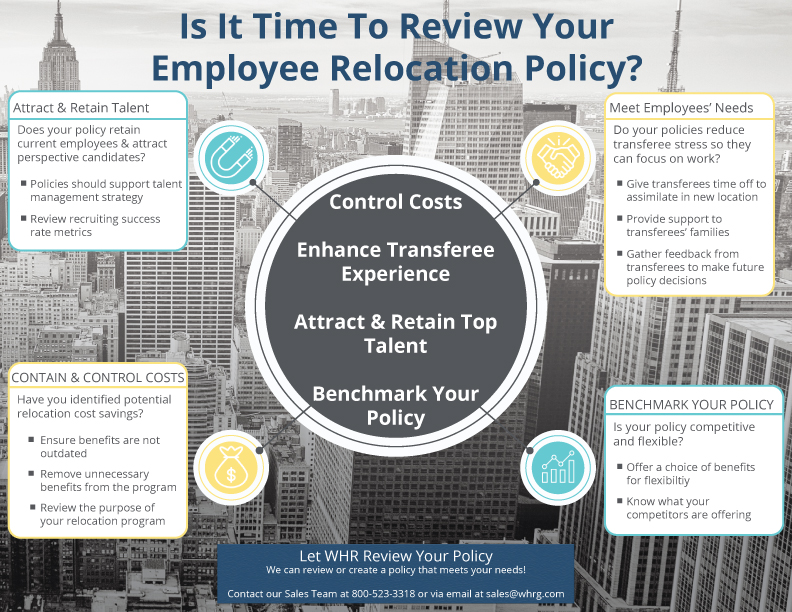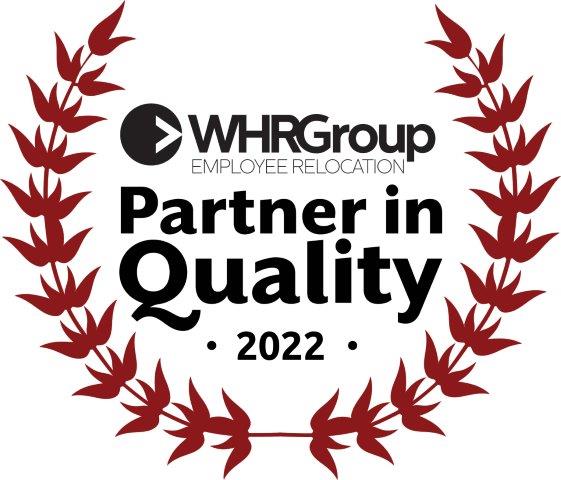Is Your Company Managing the Emotional Toll of an Employee Relocation?

Moving is often considered a top life stressor, so what happens when you add in a few other big stressors like buying/selling a home and starting a different job in a new location? How stressful might that be for a transferring employee? More importantly, how are your relocating employees and their families emotionally impacted by this stress?
Managing the potential emotional toll is a key factor all employers should address, especially if your company considers your employees one of its most valuable assets. As an employer, you must consider costs and logistics but don’t ignore the potential emotional tolls too!
What is the Emotional Toll of Relocating on the Employee?
According to WHR Group Human Resources Manager, Kimberley Uitz, SHRM-CP, “The stress of moving can directly impact an employee’s mental health and engagement with their employer. When employees start to become disengaged, their productivity will start to decline. This will become a trickle-down effect that can directly impact teams and eventually the company itself. Companies need to be proactive when it comes to relocation and their employee’s mental health, and take steps to prevent these declines in both engagement and productivity.”
Even in the wake of the COVID-19 pandemic, employers have continued transferring their employees to new domestic and international destinations. Transferees and their families face a host of potential emotional and mental tolls from a relocation:
- If one or more family members are unhappy with the move and having trouble settling in, the stress could affect the employee too. The employee might be feeling distracted, disengaged, or unhappy, and they might even consider leaving the new role and moving back to their original location. Uprooting an entire family’s life and acclimating to a new community can be quite difficult.
- Employee stress associated with moving to a new location might include concerns about a partner’s career, children’s education, learning new languages, cultural differences, selling their old home, or even leaving old coworkers behind.
- There may be anxiety surrounding new cultural amenities or concerns about the new destination’s real estate market or crime rates.
- The transferring employee may be worried if the new job will work out.
- A tired, disengaged or distracted employee’s attitude may be felt by new team members and affect team dynamics.
Employers Should Focus on Employees’ Emotional and Mental Health
All of these stressors can lower employee engagement, decrease company loyalty, increase turnover and affect team interactions. Given the war for talent, it’s important to consider more than just the costs and logistics of employee relocation. A transferee’s emotional needs should not be excluded. “The war for talent continues even with unemployment reaching new highs back in 2020. Recruiters are all competing to fill those critical positions, and companies cannot afford to lose talent as economies will start to bounce back. Those companies that are ready to compete will win in 2021,” says Uitz.
According to an article in Employee Benefit News, “When it comes to employee relocation, most organizations focus on the nuts and bolts, thinking strategically about the costs associated with the move and what will be the most affordable option to get their people from point A to point B. It makes sense from a business perspective, but it’s not how to make a relocation successful. Employers have to remember they are moving people, not just boxes. Any time you deal with people, you need to adopt a human-centered approach.
“While you’re helping them get their belongings from one place to the next, they’re dealing with switching insurances, licenses, and addresses. If they have a family, they need to enroll their children in new schools, find doctors, and a new job for their spouse or partner. On top of that, they might be dealing with some negative emotions from their family, or unhappy with the move. All of this can influence how your employee feels about their new position and how they assimilate into their new role.”
The stakes can be even higher when the employee is relocating from their home country to a new country, and the emotional tolls might take on a new tone. According to WHR’s International Client Services Manager, Linden Houghtby, GMS®, who recently relocated from the U.S. to our Switzerland office, “When relocating to another country, there is additional stress involved in the regular activities that you take for granted at home, like buying groceries, for example. This additional stress can be emotionally wearing.”
According to an article from Talaera, a language training company, “As an HR manager, you want employee relocation to be as smooth as possible. But for many employees, leaving their home country behind is a big deal. The human element is critical to the well-being of your international hires.”
What Can Employers Do to Minimize the Emotional Toll of Relocation?
“Employee engagement can be directly linked to employee mental health. If employees are not engaged, turnover increases and employer costs rise. If a company wishes to remain competitive in the coming year, they need to ensure that all of their employees’ needs are met, including emotional health,” says Uitz.
Make sure you have a relocation policy that includes all potential support including the following:
- Medical Options
- Education Options
- Local Shopping Information
- Transportation Information
- Utility Connections
- Education Assistance
- Site Visits/Area Orientation
- Help Buying & Selling Homes
- Household Goods Move
- Temporary Storage
- Family Support
- Ongoing Assignment Support
- Language & Cultural Training
- Immigration Services
- Property Management
- Temporary Housing
- Lists of Community Resources
- Cost of Living Pay Adjustments for Higher Cost Areas
- Driver’s License and Registration Information
- Spousal/Partner Career Assistance
”If relocation is not handled successfully, it threatens the employer’s ability to retain the employee—and it risks losing someone the employer has devoted time and money to develop and move,” according to a SHRM article.
If you want to attract and retain top talent and if you consider your employees one of your most important assets, remember to address more than just costs and logistics. Taking care of your employees’ emotional health will pay out for years to come. Lastly, partner with a good Relocation Management Company (RMC) that will help you provide these invaluable services to your most important assets. It’s important that your RMC understands and honors your company culture.
For more information about WHR’s Relocation Management Services, contact sales@whrg.com or 800-523-3318.




